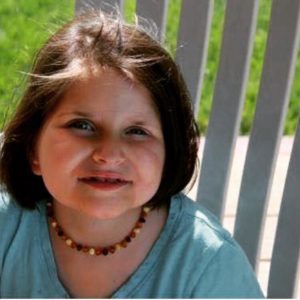FOR IMMEDIATE RELEASE
Media contact: Jessica Fletcher, Director of Communications, information@pitthopkins.org
Pitt Hopkins Research Foundation appoints new board members;
recognizing a continued commitment to fundraising and research
Los Angeles, Calif. (December 5, 2016) – Effective January 1, 2017, the Pitt Hopkins Research Foundation (PHRF) is proud to announce the appointment of three newly-elected advocates of the Pitt Hopkins Syndrome community to serve on the Foundation’s Board of Directors: Nicole Almond Anderson, MNLM (Phoenix, Ariz.); Corinne DePersis, Ph.D. (Denver, Colo.) and Will Eyres (New Brunswick, Canada).
The mission of the Pitt Hopkins Research Foundation is to support research dedicated to finding a treatment, and an eventual cure of Pitt Hopkins syndrome and other similar disorders. The PHRF is served by two boards; the Board of Directors, comprised of parents and professionals who volunteer their time, so that nearly 100% of all funds donated go to finding a cure, and the Scientific Advisory Board. Together, these individuals promote awareness of Pitt Hopkins Syndrome, dedicate their time to advancing research andbringing practical treatment into current medical practice, as well as support families of children and adults with Pitt Hopkins Syndrome.
“Each one of these individuals shown an incredible dedication to helping not only their own kids, but all kids with Pitt Hopkins and we feel incredibly lucky to have them join the team,” said Audrey Davidow, President of the Board of Directors for the Pitt Hopkins Research Foundation.
Anderson, DePersis and Eyres join current board officers and general members: Audrey Davidow Lapidus, President, Theresa Pauca, Vice President; Heather Maginn, Secretary; Diane Sellew, Treasurer; Jessica Fletcher, Director of Communications; Eric Lapidus, Director of Fundraising; Paul Pauca; Jack Maginn; Jeff Davidow; Diane Krell; Traci Green and Claudette Mirigliani.
Learn more about the newest board members below.
Nicole Almond Anderson, Mother to Alexandra, 22 mos. old
“Seven months ago Alexandra was diagnosed with Pitt Hopkins Syndrome and in an instant the dreams I had envisioned for her were crushed. As much as I grieved this news, I also vowed to never stop fighting for a better life for our daughter,” said Nicole Almond Anderson. “Just hours after getting the call from the neurologist, I found the Pitt Hopkins Research Foundation and was immediately welcomed into their courageous community by their president, Audrey. I remember telling her that night how ready I was to start fundraising for a cure. From that conversation (and from an immense fire burning within me), we launched Alexandra’s Pitt Crew to garner support from friends and family. Only 90 days after publicly announcing the news and beginning our fundraising campaign, we now have 175 active donors that have given nearly $20,000 to fund a cure. We are so incredibly grateful for their support,” she added.
Anderson believes her experience, education and dedication has equipped her with the essential skills needed to be a change-agent for her daughter and the greater Pitt Hopkins community. For nearly a decade, Anderson’s career at Arizona State University (ASU) has provided her with experience in nonprofit event planning, donor engagement and marketing and communications. Currently, she is the Manager of Marketing, Communications and Stakeholder Relations for the ASU Lodestar Center for Philanthropy and Nonprofit Innovation. Before coming to ASU, she was at the Health Industry Business Communications Council, a nonprofit that helps to ensure safe and efficient healthcare delivery via electronic communication devices. Anderson received a BA in Journalism and Mass Communication from the Walter Cronkite School of Journalism and Mass Communication at ASU, as well as Masters of Nonprofit Leadership and Management from the College of Public Service & Community Solutions at ASU. She also serves as President of the Sun Devil Club’s Young Professionals Group and previously she was the Vice President of the ASU Young Alumni Chapter, a member of the Young Nonprofit Professionals Network and a Class 36 member of Valley Leadership. She now looks forward to combining her passion to serve, along with advocating for those that are developmentally disabled, by getting involved in local pediatric disease advocacy groups.
“As devastating as getting the diagnosis was, we also were filled with hope after reading about the incredible research already being funded by the PHRF. I am beyond humbled and honored to join their board and I can say with certainty that Alexandra’s incredible Pitt Crew and her family and I look forward to making a positive impact on the organization and helping to continue this critical work,” she concluded.
Corinne DePersis, Mother to Madeleine, 2 years old
“When we received the call that Madeleine had been diagnosed with Pitt Hopkins Syndrome, my world shattered. We had been fighting for months and months to help Maddie ‘catch back up’ to the developmental milestones that kept passing us by. For a fleeting moment, the diagnosis felt like all that fighting was for naught, and her diagnosis predetermined her fate. But that night, with swollen, tear-filled eyes, I found the Pitt Hopkins Research Foundation and the members who had picked up the fight against this devastating genetic condition,” said Corinne DePersis, Ph.D. “Every parent wants to do everything they can for their children, to provide every opportunity to succeed which is why I felt so strongly about becoming a member of this board. I am dedicated to expanding the breadth and depth of research to help discover treatments and ultimately a cure for Pitt Hopkins Syndrome. I am so grateful for the relationships with the scientific community the foundation has already cultivated and I look forward to enriching these relationships,” she added.
DePersis’ background has also uniquely prepared her for the Pitt Hopkins Research Foundation board of directors. She received her Bachelors of Science degree in Biology from the State University of New York College at Geneseo. After which she received a Cancer Research Training Award for a year of research at the National Cancer Institute at the National Institutes of Health main campus in Bethesda, Md. DePersis then continued her scientific career by accepting a graduate student position at the University of Colorado Health Sciences Campus in Denver, Colo. where she studied Immunology, culminating in her Doctoral degree. When her daughter, Madeleine, started showing concerning symptoms, DePersis left her professional life to be a full-time Mom and manager of Madeleine’s health and therapy regimen.
“My formal scientific training provides me with the keen understanding of the challenges we face in research. I also understand the enormity of the financial burden required to fund research projects we need to advance the science towards a real breakthrough,” said Corinne DePersis, Ph.D. She has shown a strong commitment to fundraising and has hosted several successful fundraisers including ‘Madeleine’s 2nd Birthday Party’ which raised over $5,000 and the ‘Pitt Hopkins Awareness Day event’ in Denver which yielded several thousand more. “It is time to explore more substantial funding sources and I look forward to new opportunities doing such as part of the board,” she added.
Will Eyres, Father to Iris
“I am honored to be part of the Pitt Hopkins Research Foundation, an amazing organization that has accomplished so much in its short history, and look forward to contributing to the ultimate goal of finding a cure for all our kids,” said Will Eyres.
Eyres has worked around the world in the maritime industry for ten years and currently he and his family reside in New Brunswick, Canada. “Fundraising is one of the best things we can do for our kids and we are very fortunate to have the full support of our entire family,” he added.
“‘Rafa’s for Research’ has been a great event and we hope to make it better every year and find additional avenues of fundraising in the near future,” he added. Rafa’s Cafe raised an astounding $32,000 for research on November 5, 2016, during the Dallas Family Conference. Additional thanks to Raphael and Kathy Carreon, owners of Rafa’s, and the grandparents of Iris Eyres, who was diagnosed with PTHS last year.
For additional information regarding the Pitt Hopkins Research Foundation, visit https://pitthopkins.org. If you have questions, please email information@pitthopkins.org.
###
ABOUT THE PITT HOPKINS RESEARCH FOUNDATION
Established in 2013 as a 501(c)3, the Pitt Hopkins Research Foundation (PHRF) exists to support critical research dedicated to finding a treatment, and an eventual cure of Pitt Hopkins syndrome and other similar disorders. Pitt Hopkins Syndrome (PTHS) is a rare, neuro-developmental disorder caused by a mutation/deletion of the TCF4 gene on the 18th chromosome. It is characterized by significant developmental delays, problems with motor coordination, breathing abnormalities and seizures. Most individuals with Pitt Hopkins do not develop functional speech. Pitt Hopkins affects all races and both genders equally. Since the gene that causes Pitt Hopkins was only found in 2007, currently there are approximately 650+ people in the world diagnosed with this incredibly rare syndrome. The Pitt Hopkins Research Foundation is dedicated to supporting the Pitt Hopkins community with resource recommendations, scientific symposiums and family conferences, parental support and the latest medical information. For more information, please visit: https://pitthopkins.org.
PDF File: new-board-members_press-release_phrf_dec-2016_final

 Sarah Huffman was a very special and inspiring young lady and will forever hold a treasured place in our hearts. The Pitt Hopkins Research Foundation is dedicated to making a difference in the lives of individuals with Pitt Hopkins. Annah Moore, a Vanderbilt University Graduate Student, is a part of the Sweat lab that was the first lab we ever funded. We are thrilled to announce that we have named a grant to Annah in Sarah’s honor – “The Sarah Huffman Award for Promising Young Researchers.”
Sarah Huffman was a very special and inspiring young lady and will forever hold a treasured place in our hearts. The Pitt Hopkins Research Foundation is dedicated to making a difference in the lives of individuals with Pitt Hopkins. Annah Moore, a Vanderbilt University Graduate Student, is a part of the Sweat lab that was the first lab we ever funded. We are thrilled to announce that we have named a grant to Annah in Sarah’s honor – “The Sarah Huffman Award for Promising Young Researchers.”
